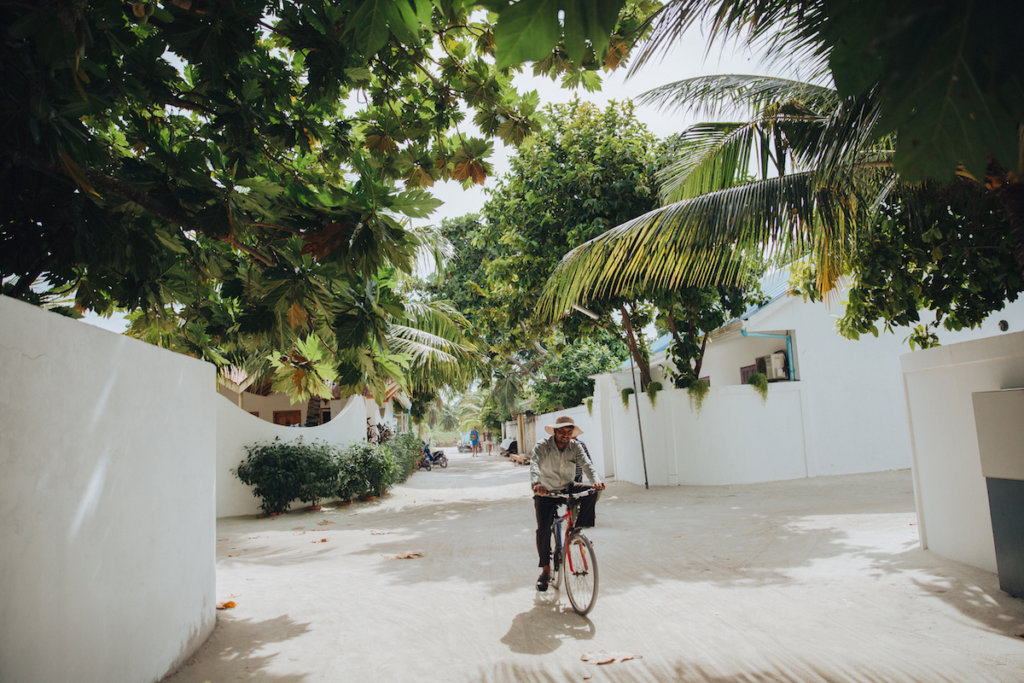The Maldives’ Elections Commission on Monday declared a resounding presidential election victory for the opposition candidate, and after hours of tense waiting the country’s authoritarian incumbent conceded defeat.
The opposition candidate, Ibrahim Mohamed Solih, won more than 58 percent of the ballots cast in an election with almost a 90 percent turnout among eligible voters, according to the Elections Commission’s Twitter account.
But in a country with a brief but painful history of derailed democracy, the silence by President Abdulla Yameen, stretching for hours after Sunday night, had left many worried. The Supreme Court annulled a previous presidential election, and Yameen has put pressure on the judiciary to jail opponents in the past.
Yameen finally conceded defeat Monday afternoon at a news conference. “Yesterday, the Maldivian people decided what they want,” Yameen said. “I have accepted the results since yesterday. Earlier today, I met with Ibrahim Mohamed Solih, whom the Maldivian people have chosen to be their next president, and I congratulated him.”
While the opposition painted Sunday’s election as a final stand to preserve the Maldives’ nascent democracy — just a decade old — the vote was also seen as a critical referendum at a time when the archipelago nation has been caught between the influence of China, on one hand, and of India and the West on the other.
The islands of the Maldives divide the Indian Ocean from the Arabian Sea, sitting along global trade routes crucial to China’s ambitions to expand its naval and commercial routes. China has spent up to $2 billion on infrastructure and other projects in the Maldives; the opposition and Western and Indian diplomats have warned that a growing dependence on China could threaten to the Maldives’ sovereignty.
But Solih’s win will probably not roll back Chinese influence here. India and the United States have been unable to match China’s spending across South Asia as part of its Belt and Road Initiative, which Beijing says will secure commercial interests but which skeptics say will also expand its global military footprint.
Instead, Solih has signaled that he will try to hedge between global powers and restore the warm ties the country once shared with India, which has watched China’s rise in the region with concern. In the past, the opposition leader has promised to strengthen relations with neighboring countries to preserve security in the Indian Ocean.
Solih pledged this month to restore democratic freedoms if he won, including rolling back the anti-defamation act that Yameen introduced as a tool for locking up opponents. Solih also promised to investigate the 2014 disappearance of Ahmed Rilwan Abdulla, a prominent journalist critical of the governing party.
On Sunday, voters turned out in vast numbers, waiting in long lines for hours.
The streets of Malé, the capital island, were adorned with flags and banners of pink and yellow, the colors of the governing and opposition parties. The election had an almost carnivallike atmosphere, with voters exiting polling sites to take selfies and posing for pictures showing their fingers dipped in ink.
“I think we are still voting for freedom, to get freedom,” said Hussain Rasheed, a 53-year-old diver, as he proudly displayed a finger stained with voting ink outside a polling center. “We can’t get justice without freedom. In hundreds of years of this country, we haven’t really got justice.”
But the nation held its breath Monday waiting for Yameen to concede. In the 2013 presidential election, the Supreme Court stepped in to annul the first round and delayed later rounds. Many worried this time that Yameen might pressure the judiciary to do it again or to use security forces to declare military rule.
Still, such a clear and publicly announced defeat could make it difficult for Yameen to sway the military, especially given that the jailed former president and opposition figure Maumoon Abdul Gayoom is said to still command respect within the security forces.
The election in the Maldives is the latest in a region where China’s spending and influence have been a hot-button topic.
In Sri Lanka in 2015, the opposition ran and won on an anti-Chinese platform. And in Malaysia this summer, the former government lost the race in part because of corruption concerns revolving around Chinese government-funded projects. Malaysia’s new government has put on hold some of those projects, saying the costs were inflated or they made little economic sense.
“Most of the region’s elections have run on domestic issues; it’s not all about Chinese investments,” said Dhruva Jaishankar, a fellow at the Brookings Institution’s India branch. “But it has featured in many of these elections.”
He added: “The one thing these countries all have in common, if you look at their proportion of foreign investments, it’s overwhelmingly Chinese as opposed to more of a balance. So this suggests that there is a backlash over being too economically overdependent on China. But this doesn’t mean China will no longer play a role. Its influence and spending is hard to match.”
c.2018 New York Times News Service
